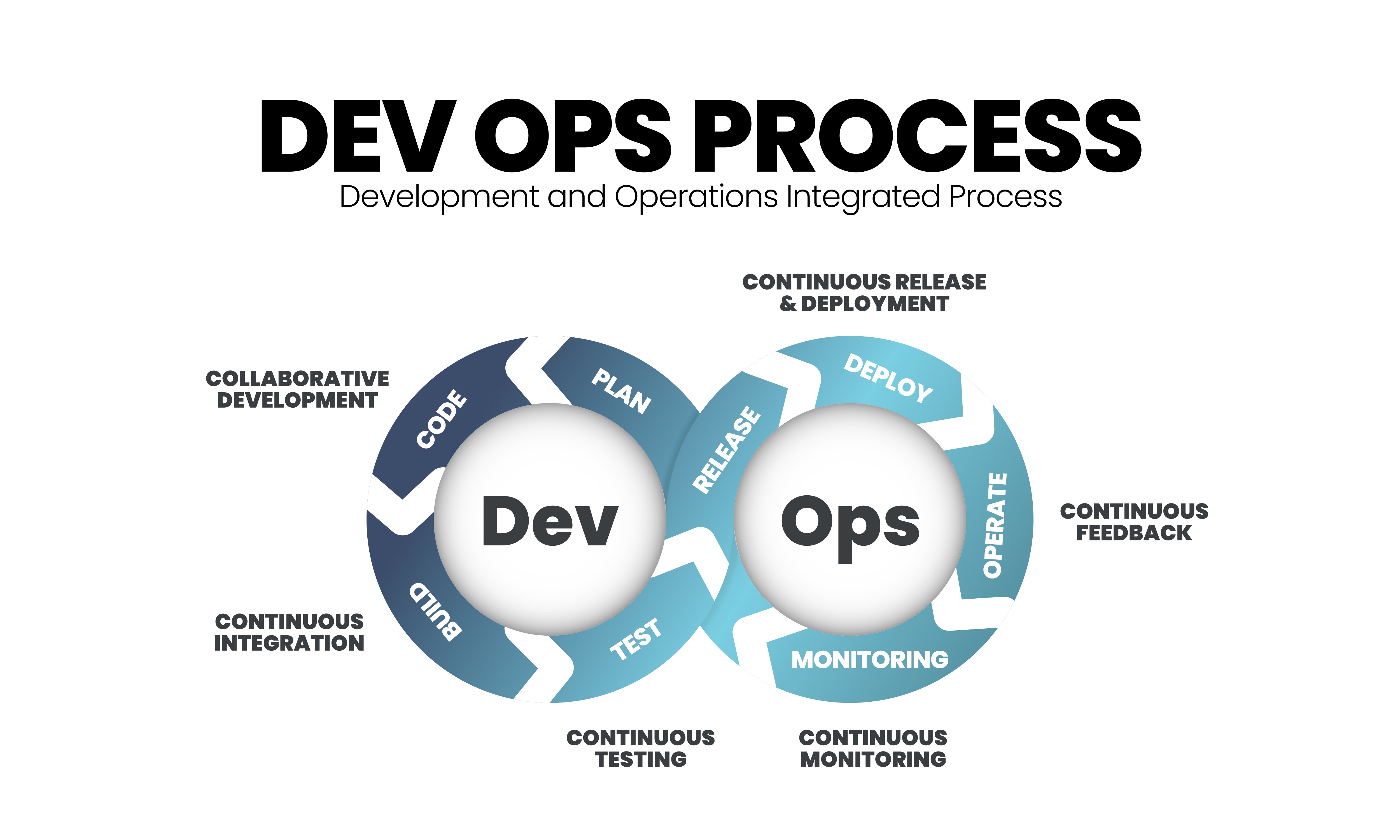
DevOps is an engineering practice that aims to reduce the development lifecycle and enable continuous delivery of high-quality software, both of which are key for digital-ready business. The focus is on empowerment, communication and collaboration to enable development and operations teams (hence, DevOps) to work together in a continuous cycle.
This enables frequent software releases, automation of tasks and processes and increases the speed of development and deployment. DevOps is essential to helping organisations keep up with changing customer expectations. Research from Computer Associates in 2014 found that organisations using DevOps experienced an 18% to 21% reduction in the time it took to release new features. And releasing new features faster also means it’s cheaper to deliver them. Not bad, huh?
Done well, DevOps creates seamless integration between software development teams, operational functions and technology managers. It aims to proactively remove obstacles with approaches like containerisation, continuous integration and automation. DevOps is a natural extension of Agile software delivery practices which also leverage the benefits of cross-functional teams. It also enables companies to plan, innovate and change quickly.
DevOps has many business benefits, including the faster release of new and high-quality features, improving teamwork, encouraging innovation, embedding security and compliance requirements from the outset and faster remediation of bugs or vulnerabilities. Integrating security to create ‘DevSecOps’ means companies can continue the rapid cadence of delivering new features without compromising controls or increasing risk. This is standard practice for many digital native businesses, such as Facebook, Google and Amazon, which can deploy new features several times a day with the confidence that security and stability will not be affected. This also allows them to test new features with targeted customer segments before rolling them out widely to the full audience.
How DevOps teams work
A DevOps team combines the development and operations functions into a single group. It’s a cross-functional, full-stack view of technology: developers that can deploy applications, testers that understand code quality, operations engineers with security expertise and service managers to oversee releases and run services.
This structure enables collaboration across otherwise siloed functions to deliver business value faster while increasing quality and proactively mitigating risks with tools to automate key tasks.
Tools for automation are an essential part of DevOps practices and, used properly, will improve the quality and speed of features that are released. Tools can automate many tasks and processes in the software development workflow, from code and security reviews to testing and deployment. There are dozens of tools covering the full DevOps cycle, including source code management, version control, automated code reviews and CI/CD: continuous integration and continuous delivery.
Most tools are available as Software as a Service (SaaS), and some of the popular ones include Jenkins, Docker, Kubernetes, Git and Chef. Tools can also help to implement standards for code quality, security and compliance, if necessary.
Where to start with DevOps
Like Agile, DevOps is just as much a cultural change as it is a technical one. Its success relies on close collaboration within technology functions, as well as with other teams from the business, such as security, compliance and risk management. Companies with the most success in embedding DevOps have committed fully to managing technology in a different way.
Critical steps for the introduction of DevOps should include:
Defining the desired outcome to communicate this to all team members
Identifying key resources to champion the change
Assessing and implementing DevOps tooling, and training the team on how to use them
Defining the measures of success for the move to DevOps
Francis North Group has a dedicated DevOps practice. Learn more about our capabilities or Contact Us for more information







